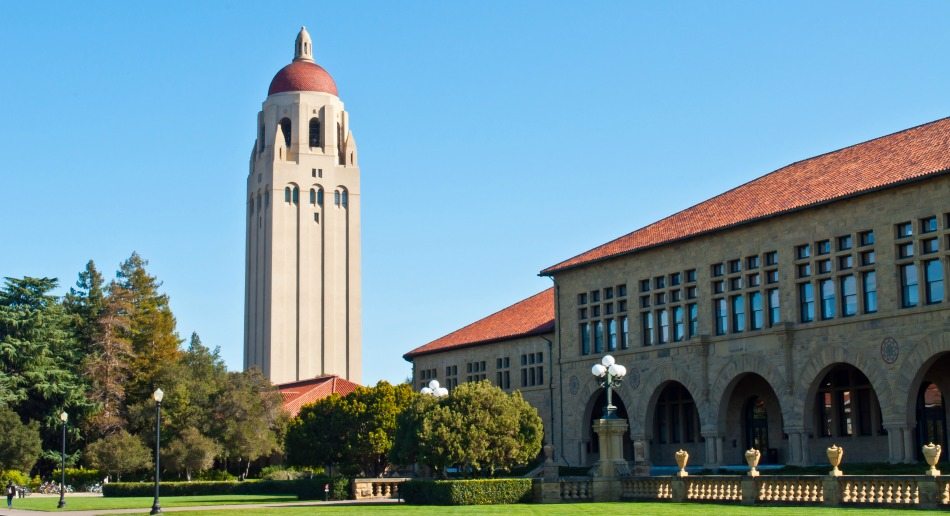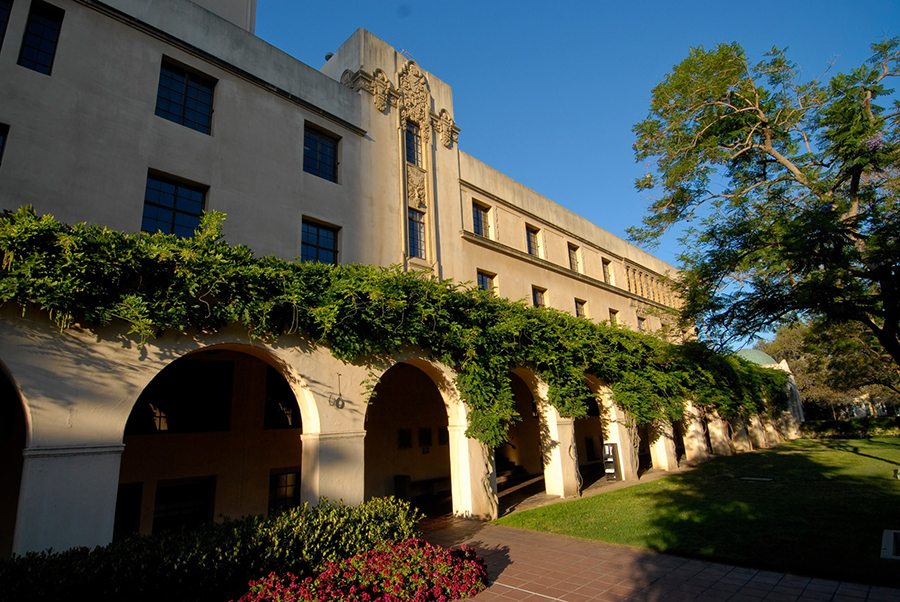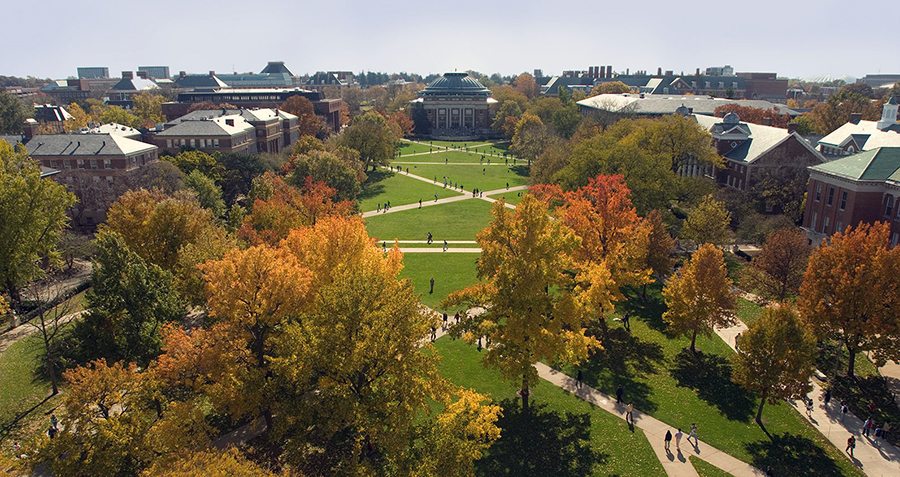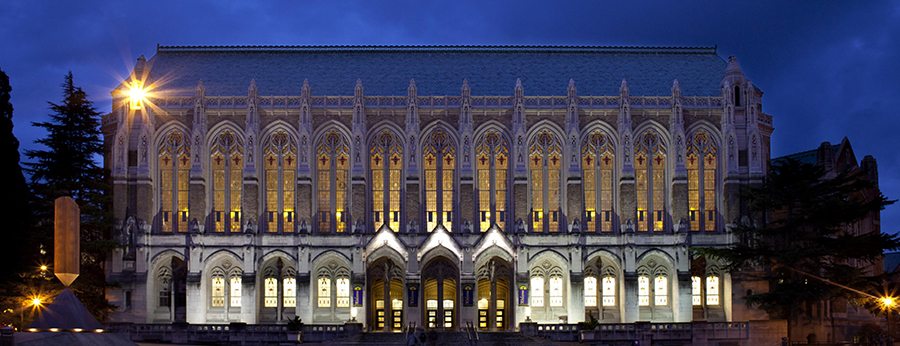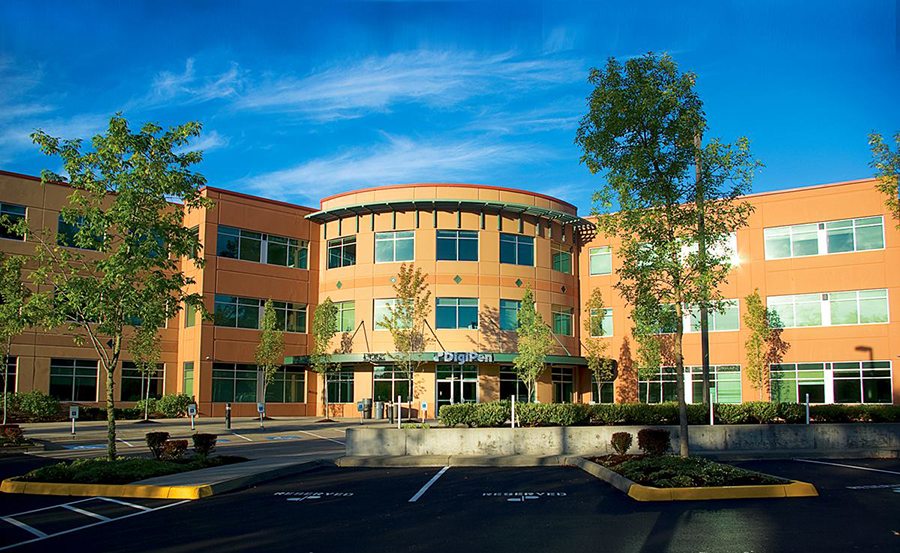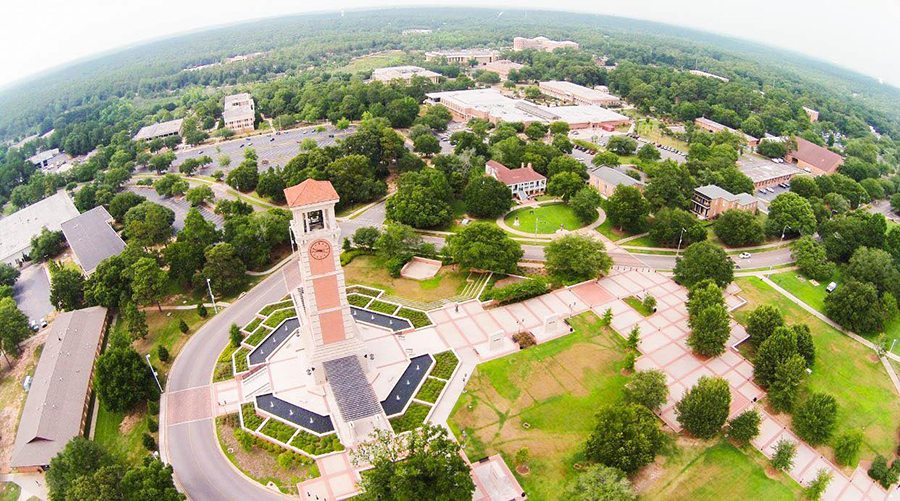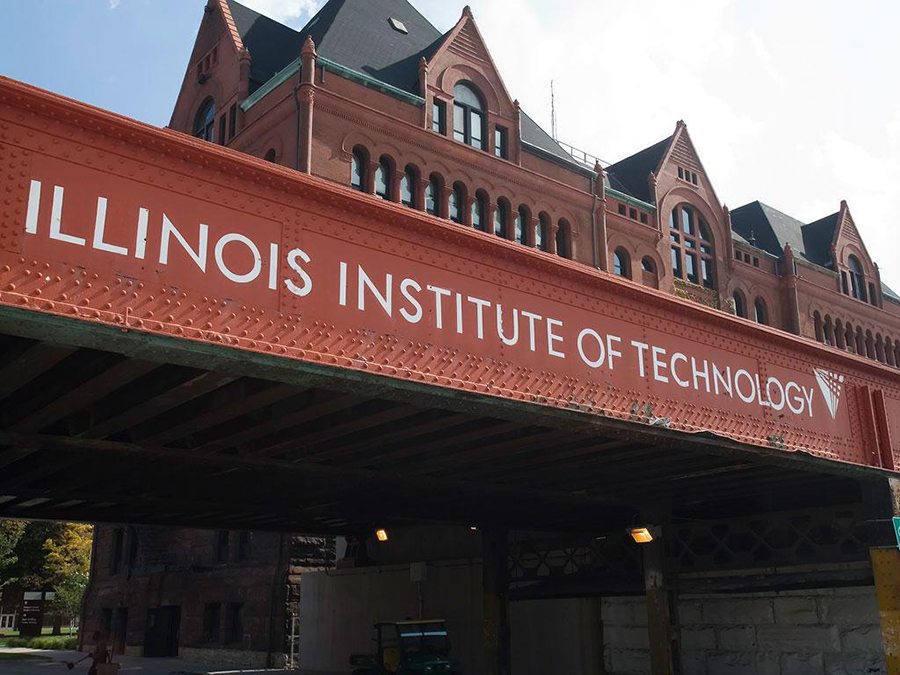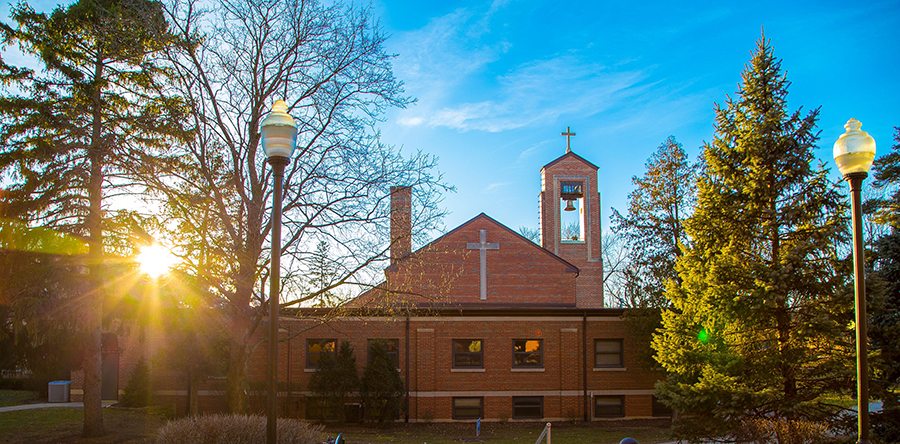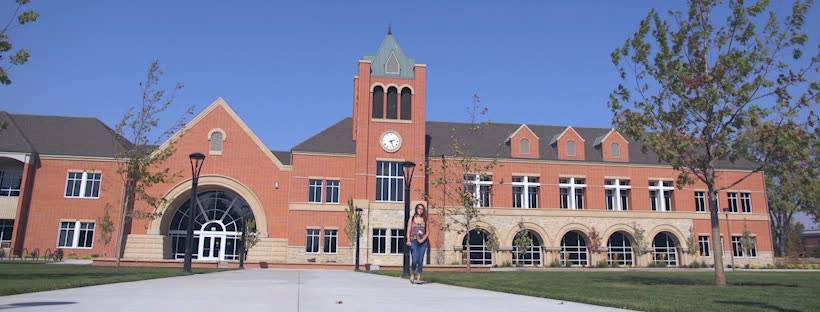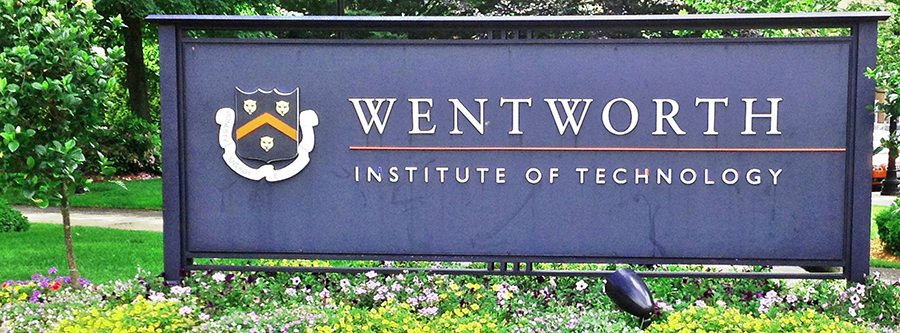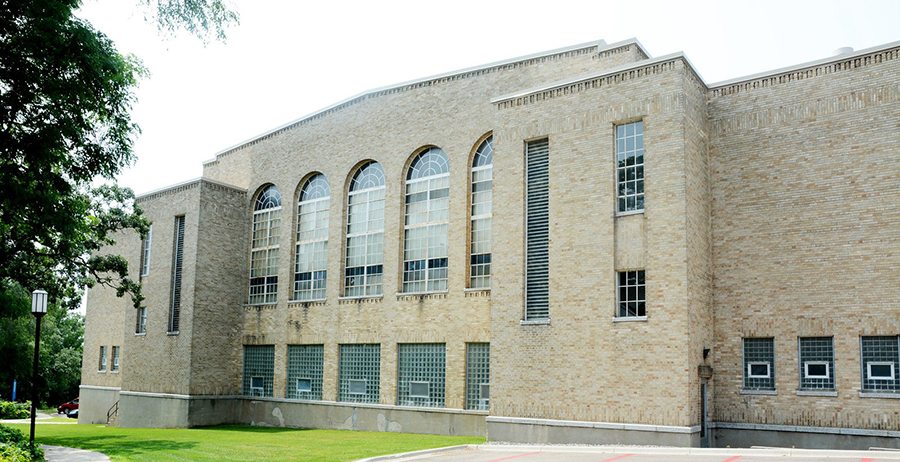Computer engineering jobs have a high average salary, strong growth rate, and boundless opportunities for specialization.
There are no limits to how far you can go with a degree in computer engineering.
To help you get started in this rapidly advancing, in-demand field, we’ve created this ranking of the programs that will best prepare you for a successful computer engineering career.
What kind of computer engineering degree should you get?
The colleges and universities on this list offer truly exceptional engineering degree programs. Many of them offer access to state-of-the-art facilities, events and workshops with distinguished faculty members, and the chance to live and learn with peer scholars.
But traditional on-campus programs aren’t for everyone. If you have a full-time job or a family to care for, you may not be able to put your life on pause while you earn your degree. For those people, an online degree can be the ideal choice. Take a look at our ranking for the Best Online Bachelor’s in Computer Engineering Degrees to start thinking about your options.
How much money do people make with a bachelor’s degree in computer engineering?
According to PayScale, the average graduate with a bachelor’s degree in computer science earns approximately $65,684 when they first leave school. With five to nine years of experience, the average salary rises to $87,510. After 10 to 19 years working in the field, the average computer engineer is earning an annual salary of $110,275.
What can you do with a bachelor’s degree in computer engineering?
A computer engineering degree can open the door to many career paths. A graduate from a computer engineering program might find a job as a network systems administrator, computer network architect, software developer, or cybersecurity specialist.
Depending on where you choose to specialize, you may also work in embedded systems, robotics, computer architecture, or cloud computing, among many other possibilities.
What are the requirements for a bachelor’s degree in computer engineering?
All degrees in this field will require a strong foundation in math and physical science. Most degree tracks include some type of senior design project requirement. This capstone project typically asks students to work in teams on a real-world problem where they will design, and possibly develop and implement, an engineering solution.
What are the best bachelor’s degrees in computer engineering?
To compile this ranking, we examine each school for institutional excellence factors such as student-to-faculty ratio, incoming students’ test scores, and graduation rate. We also investigate student success factors, including tuition rates, average financial aid packages, student indebtedness after graduation, and expected early career salary for graduates.
Based on both of these assessments, each school is assigned a composite score and ranked accordingly. The data for our rankings comes from reputable sources such as the National Center for Education Statistics’ IPEDS database, PayScale, individual college websites, and U.S. News & World Report.
We hope this ranking of the 30 best bachelor’s in computer engineering degrees helps you take the next step in your academic career.
1. Massachusetts Institute of Technology
Overview
In 1865, the Massachusetts Institute of Technology welcomed its first class of 15 students. Today, MIT is among the most respected universities in the world, with many top-ranked undergraduate and graduate programs in science, technology, and related disciplines. U.S. News & World Report ranks MIT as the number one engineering school in the United States. Computer engineering students at MIT will be able to engage with research at the cutting edge of their field.
Program Features
The bachelor’s degree in Computer Science and Engineering, like all MIT programs, emphasizes a “learn by doing” approach. Students will have opportunities to pursue their professional interests through a number of advanced undergraduate subjects and independent inquiry options. Specialization options for students in the Computer Science and Engineering program include:
- Foundations of Computational and Systems Biology
- Large-scale Symbolic Systems
- Constructive Computer Architecture
- Advanced Natural Language Processing
Notables
Undergraduate students at MIT have access to a suite of world-class academic enrichment activities, such as the Undergraduate Research Opportunities Program, which allows students to work with faculty members who are leading experts in their field. Through UROP, students can even initiate their own research projects. Another signature MIT program is the Undergraduate Practice Opportunities Program, which provides experiential workshops, coaching, and mentorship.
2. Georgia Institute of Technology
Overview
Located on 400 peaceful, tree-lined acres in the thriving city of Atlanta, the Georgia Institute of Technology is ranked number seven among all public universities nationwide by U.S. News & World Report. The school grants more engineering degrees to women than any other institution in the country. The B.S. in Computer Engineering from Georgia Tech is a customizable degree track that encourages students to pursue the topics that most spark their curiosity.
Program Features
The Computer Engineering program covers core topics such as computer architecture, digital design, computer networks, and computer applications. Beyond these fundamental concepts, undergraduates can choose electives in topics like embedded systems and software, distributed systems and software, and VLSI design (to name just a few). Requirements for all Computer Engineering majors include the following courses:
- Introduction to Signal Processing
- Digital Design Laboratory
- Mathematical Foundations of Computer Engineering
- Architecture, Concurrency, and Energy in Computation
Notables
Georgia Tech offers the opportunity for juniors in the Computer Engineering track to apply for a joint degree program. Through this program, candidates will complete one extra year of study and earn an M.S. in Electrical and Computer Engineering. Undergraduates can also participate in the Cooperative Education Program, which allows students to alternate between on-campus study and full-time, paid employment relating to their major. More than 30 percent of Electrical and Computer Engineering students participate in the co-op program.
3. Stanford University
Overview
Stanford University is one of the world’s premier research institutions. The undergraduate programs at Stanford are among the most prestigious, and most selective, in the nation: The acceptance rate is under 5 percent. For high-achieving, highly motivated students, Stanford offers truly exceptional undergraduate programs in Computer Science and Electrical Engineering.
Program Features
Both the Electrical Engineering and the Computer Science tracks are available as either a Bachelor of Science or as a minor. Undergraduates may also choose one of the interdisciplinary engineering majors, such as Architectural Design or Biomedical Computation (among numerous other options). An Individually Designed Major in Engineering is also available. For the Computer Science major, students will complete the following courses:
- Computer Organization and Systems
- Principles of Computer Systems
- Introduction to Probability for Computer Scientists
- Data Structures and Algorithms
Notables
Students in the Computer Science program can choose one of seven tracks to develop their understanding of a specific topic. Options for Computer Science tracks include Artificial Intelligence, Theory, Systems, Human-Computer Interaction, Graphics, Information, Biocomputation, Unspecialized, and Individually Designed. The internationally renowned School of Engineering at Stanford also offers undergraduate degrees in Bioengineering, Environmental Systems Engineering, and several other disciplines. Stanford has a student-to-faculty ratio of 4 to 1.
4. University of California Berkeley
Overview
In the U.S. News & World Report rankings of the top universities, the University of California Berkeley is consistently named the best public university nationwide. UC Berkeley has also been named to the top five of all universities around the world. UC Berkeley is home to over 270 degree programs, including a number of prestigious undergraduate engineering programs.
Program Features
The Department of Electrical Engineering and Computer Science (EECS) offers two distinctive bachelor’s degree programs: electrical and computer engineering (ECE) and computer science and engineering (CSE). Both degree tracks are available as part of the elite Honors Program for exceptional undergraduates. A number of dual degree programs and joint majors are also available through the EECS department. Lower division coursework for an EECS major includes:
- The Structure and Interpretation of Computer Programs
- Data Structures
- Machine Structures
- Discrete Mathematics and Probability Theory
Notables
Undergraduates will have opportunities to work with world-class faculty members on groundbreaking research projects. Research initiatives at the university cover topics such as artificial intelligence, robotics, cyber-physical systems, sensor technology, micro and nanoelectromechanical systems, and big data. UC Berkeley offers a Management, Entrepreneurship, and Technology Program, which leads to a dual Bachelor of Science in business and EECS.
5. Carnegie Mellon University
Overview
Carnegie Mellon University is a highly distinguished research university located in Pittsburgh. Established in 1900 by Andrew Carnegie, the university is home to an acclaimed College of Engineering. A recent ranking from Times Higher Education named the engineering and technology programs at Carnegie Mellon 15th in the nation.
Program Features
The Bachelor of Science in Electrical and Computer Engineering (ECE) is designed to be as flexible as possible, allowing students to gain a comprehensive overview of the field. Students are encouraged to tailor their degree path to reflect their academic strengths and professional goals. The ECE program offers five areas of specialization, including Device Sciences and Nanofabrication, Signals and Systems, Circuits, Hardware Systems, and Software Systems. All ECE majors will complete the following coursework:
- Introduction to Computer Systems
- Electronic Devices and Analog Circuits
- Structure and Design of Digital Systems
- Signals and Systems
Notables
All candidates in the B.S. in Electrical and Computer Engineering program will complete a capstone design project. Students will work in teams to address a realistic engineering problem and propose a solution within technical and socioeconomic constraints. To fulfill the capstone design requirement, students can enroll in the Rapid Prototyping of Computer Systems course, the Mechatronic Design course, or the ECE Design Experience course.
6. Cornell University
Overview
As a partner of the State University of New York, Cornell University embraces a unique identity as a private university with a public mission. Cornell offers the internationally renowned academic standards and research opportunities of an Ivy League institution while prioritizing public engagement and contributions to the state, the country, and the world. This emphasis on the practical application of knowledge is a key element of the B.S. in Electrical and Computer Engineering.
Program Features
Cornell University was home to the first academic program in electrical engineering in the world. Today, the Cornell School of Electrical and Computer Engineering offers three nationally ranked degree programs, including the B.S. in Electrical and Computer Engineering. Undergraduate ECE coursework includes titles such as:
- Introduction to Probability and Inference for Random Signals and Systems
- Ethical Issues in Intelligent Autonomous Systems
- Digital Logic and Computer Organization
- Inventing an Information Society
Notables
The ECE program at Cornell has a remarkable placement rate for its graduates: Among recent alumni, 41 percent went on to advanced graduate-level study. The remaining 59 percent found employment in a variety of diverse roles and settings, from innovative start-ups to multinational corporations. U.S. News & World Report consistently ranks the Cornell ECE program in the top 10 nationwide.
7. California Institute of Technology
Overview
The Pasadena campus of the California Institute of Technology is home to a community of roughly 1,000 undergraduate students. Founded in 1891 as Throop University, Caltech is now one of the most elite institutions for students of science and technology. Among Caltech’s numerous nationally ranked programs, the most popular is the Bachelor of Science in Computer Science.
Program Features
Students in the Computer Science major can customize their academic program with a number of specializations. Degree tracks are available in Algorithms and Complexity, Algorithmic Economics, BioComputers, Graphics, Machine Learning and Artificial Intelligence, Networks and Distributed Systems, Robotics and Control, and Systems. All Computer Science students will complete the following coursework:
- Introduction to Discrete Math
- Fundamentals of Computer Programming
- Decidability and Tractability
- Introduction to Computing Systems
Notables
The flexibility of the Computer Science degree encourages students to pursue interdisciplinary interests. Approximately 36 percent of Computer Science majors pursue a double major or a minor in another academic field. Forty-three percent of incoming students to the Computer Science program are women. Caltech has one of the lowest student-to-faculty ratios of any institution on our list (or just about anywhere else) at 3 to 1. The university employs roughly 300 faculty members, representing a diverse array of research interests and professional areas of expertise.
8. University of Illinois at Urbana-Champaign
Overview
In the most recent rankings from U.S. News & World Report, the University of Illinois at Urbana-Champaign came in number 14 among all public universities and number 52 among all national universities, public or private. The university was founded in 1867 and has offered outstanding academic programs for more than 150 years. Specifically, the College of Engineering has an illustrious reputation for academic quality: It’s been ranked sixth in the nation for both graduate and undergraduate programs.
Program Features
Students at the University of Illinois can pursue a Bachelor of Science in either Computer Engineering or Electrical Engineering. Both degree tracks provide a broad foundation in mathematics, physics, and engineering principles. Undergraduate coursework within the Electrical and Computer Engineering department includes:
- Analog Signal Processing
- Techniques for Engineering Decisions
- Green Electric Energy
- Applied Parallel Programming
Notables
The core curriculum for the Computer Engineering degree will include topics such as circuits, systems, electromagnetics, and electronics for information processing and communication. Available electives cover an array of sub-disciplines, including cyber-physical systems, software and languages, algorithms and mathematical tools, mobile and distributed computing, big data analytics and systems, artificial intelligence, cybernetics, and more. Several different honors programs are available to enhance the Computer Engineering or Electrical Engineering degree paths.
9. University of Michigan
Overview
The University of Michigan is one of the premier public universities in the United States. More than 100 U-M graduate programs have been ranked in the top 10 nationwide by U.S. News & World Report. One of U-M’s nationally recognized departments is the Department of Electrical Engineering and Computer Science (EECS).
Program Features
Students in the Computer Engineering program will have a variety of experiential learning opportunities. For example, students will both design microprocessors and build hardware-software systems that contain microprocessors. Graduates of this program have gone on to work in the technology, automotive, consumer electronics, medical, and aviation industry. Upper division Computer Engineering electives include course titles such as:
- Autonomous Robotics
- Advanced Embedded Systems
- Parallel Computer Architecture
- Computer-Aided Design Verification of Digital Systems
Notables
Michigan also offers renowned undergraduate programs in Computer Science, Electrical Engineering, and Data Science. The University of Michigan offers a wide array of extracurricular and enrichment opportunities for undergraduate students, including a robust study abroad program: Michigan ranks number 10 in the nation for the number of students studying abroad. The university’s Third Century Initiative provides unique opportunities for action-based educational experiences and service learning. Other university-wide initiatives focus on the environment and sustainability, biosciences, and big data applications in healthcare.
10. University of Texas at Austin
Overview
As the flagship institution of the University of Texas System, the University of Texas at Austin serves a student body of over 40,000 undergraduates. The community of scholars at UT Austin represents all 50 states and 118 countries. The university offers over 170 undergraduate fields of study, more than 12,400 courses, and 400 study abroad programs. UT Austin provides an Electrical Engineering degree with multiple options for specialization.
Program Features
Students can choose either the Electrical Engineering or Computer Engineering track. Both of these tracks share the same core curriculum for freshmen and sophomore students. During their junior and senior year, students will select two additional areas of emphasis within their track. Courses in the shared ECE core include:
- Sequences, Series, and Multivariable Calculus
- Linear Systems and Signals
- Matrices and Matrix Calculations
- Probability and Random Processes
Notables
Undergraduate students can earn college credit towards their ECE degree through an internship or research project. All candidates in an ECE program will take a senior capstone design course sequence. The two-semester sequence requires students to work in teams with peers and faculty mentors on real-world problems submitted by industrial collaborators. Students can present the cost analyses and design solutions that they develop in a senior showcase at the end of the course sequence.
11. Purdue University
Overview
Purdue University is a nationally renowned research institution in Lafayette, Indiana. According to the U.S. Department of Homeland Security, Purdue is the number one destination for international students pursuing a degree in a STEM discipline. The undergraduate Computer Engineering program at Purdue is ranked 12th in the nation by U.S. News & World Report.
Program Features
The School of Electrical and Computer Engineering is the largest department or school at Purdue, and one of the largest ECE departments in the nation. Purdue’s ECE programs provide a broad educational groundwork through which students can understand the implications of engineering in a global, economic, environmental, and societal context. The Computer Engineering degree is a 125 credit hour program. Thirty-five credits will come from required ECE courses, including:
- Linear Circuit Analysis
- Microprocessor Systems And Interfacing
- Probabilistic Methods In Electrical And Computer Engineering
- Electronic Devices And Design Laboratory
Notables
Both the Electrical Engineering and the Computer Engineering degree programs are accredited by the Engineering Accreditation Commission (EAC) of the Accreditation Board for Engineering and Technology (ABET), the premier national accreditation body for engineering programs. Undergraduates at Purdue will have plentiful opportunities for research. Computer Engineering majors may be particularly interested in the Birck Nanotechnology Center, where researchers work in a number of emerging fields.
12. University of Washington
Overview
Founded in 1861, the University of Washington is among the oldest colleges on the West coast. The university has a flagship campus in Seattle and additional campuses in Tacoma and Bothell, in addition to a top-tier academic medical center. The UW confers over 12,000 bachelor’s, master’s, doctoral, and professional degrees each year. Of these, roughly 1,000 are undergraduate degrees in an engineering discipline. Nine out of 10 departments within the College of Engineering are ranked among the top 25 nationwide.
Program Features
Students at the UW can benefit from the university’s location in the Puget Sound region, which is a hub for aerospace, biotechnology, global health, clean technology, and information and communications technology. The B.S. in Computer Engineering reflects the regional spirit of entrepreneurship and innovation. Undergraduate coursework within the Computer Science and Engineering department includes:
- Data Structures and Parallelism
- Hardware Design and Implementation
- Design of Digital Circuits and Systems
- Introduction to Compiler Construction
Notables
The UW ranks especially well for combining outstanding academic quality with affordability. Kiplinger’s ranked the university at number 13 among the best values in higher education. Low or lower-middle income students with Washington residency can have the full cost of their tuition covered under the Husky Promise program.
13. Florida International University
Overview
Florida International University is one of the anchor institutions of South Florida. Serving more than 54,000 students, FIU is among the top 10 largest universities in the nation. The university holds an R1—Highest Research Activity designation from the Carnegie Foundation. The undergraduate program in Computer Engineering reflects FIU’s status as a nationally distinguished institution.
Program Features
The Bachelor of Science in Computer Engineering from FIU is a 128 credit hour program. A number of concentrations are available within the degree track, including Power/Energy, Control Systems, Integrated Nanotechnology, Bioengineering, Data System Software, and others. Required courses for all Computer Engineering majors include:
- Evaluation of Engineering Data
- Software Techniques
- Embedded Computing
- Introduction to Linear Systems
Notables
A five-year dual B.S./M.S. degree program in Computer Engineering is available. The Electrical and Computer Engineering Department offers a number of scholarships based on academic merit. FIU is a leader in diversity, with Hispanic students representing 61 percent of the student body. In fact, the university is the number one university in the nation for awarding bachelor’s and master’s degrees to Hispanic students. It’s also number one in the nation for producing Hispanic engineering graduates, according to Diverse: Issues in Higher Education.
14. West Virginia University Institute of Technology
Overview
Located in Beckley, West Virginia in the heart of the Appalachian Mountains, West Virginia University Institute of Technology is a divisional campus of West Virginia University. In a 2017 report from PayScale, WVU Tech was ranked the number one institution in the state for annual return on investment for graduates. These strong overall rankings are complemented by the noted academic quality of individual undergraduate programs. U.S. News & World Report ranked the undergraduate engineering programs at WVU Tech among the top 100 nationwide.
Program Features
WVU Tech’s B.S. in Computer Engineering emphasizes a practice-oriented curriculum and hands-on learning. Students will find abundant opportunities for co-ops, internships, and undergraduate research projects. A total of 126 credit hours are required for the Computer Engineering degree. Students in this program may take courses such as:
- Analog Electronics Lab
- Digital Logic Design
- Computer Architecture
- Principles of Networking
Notables
Graduates of the Computer Engineering program at WVU Tech have gone on to hold job titles such as digital systems designer, database manager, control systems engineer, IT manager, and network specialist. The FBI, the National Security Agency, the Joint Warfare Analysis Center, and the Naval Surface Weapons Center are just a few of the employers that have hired WVU Tech graduates.
15. Ohio Northern University
Overview
First established in 1871, Ohio Northern University remains true to its original mission of service-minded education and its identity as a Methodist institution. ONU’s campus is located in Ada, roughly 80 miles northwest of Columbus. The university serves just over 3,100 students across five colleges. The T.J. Smull College of Engineering is ranked among the top 50 undergraduate engineering schools in the United States.
Program Features
The Computer Engineering program at ONU is a challenging academic path in a collaborative, student-centered environment. A total of 128 credit hours are required for the Bachelor of Science in Computer Engineering. Students in this program will take classes such as:
- Digital Signal Processing
- Embedded Systems
- Networks and Data Communications
- VLSI System Design
Notables
The Computer Engineering degree track offers considerable flexibility in the course requirements. Students are encouraged to use their available elective slots to pursue a minor or concentration that aligns with their professional goals. ONU has a student-faculty ratio of 11 to 1 and an average undergraduate class size of just 18, ensuring that students have plenty of opportunities to collaborate with peers and faculty. The College of Engineering at Ohio Northern has a 97 percent placement rate for recent graduates.
16. DigiPen Institute of Technology
Overview
The goal of DigiPen Institute of Technology is to shape students into industry-ready software developers, artists, designers, and computer engineers. The school has international campuses in Singapore and Bilbao, Spain. Stateside, DigiPen’s campus is located in Redmond, Washington in one of the country’s main video game development hubs. Students will live and learn in the midst of more than 350 nearby interactive media companies. The highly regarded B.S. in Computer Engineering incorporates DigiPen’s innovative, hands-on philosophy of learning.
Program Features
The Computer Engineering curriculum is designed to be completed in eight semesters (four academic years). Students will learn to design and develop embedded, digital, and computer systems. The program requires a minimum of 146 credit hours. Coursework within the Computer Engineering major includes:
- Low-Level Programming
- Algorithm Analysis
- Real-Time Operating Systems
- Embedded Microcontroller Systems
Notables
A number of scholarship and research stipends are available for Computer Engineering majors. Graduates of the program will be prepared for a career as an embedded systems engineer, quality control engineer, telecommunications engineer, or graphics hardware engineer, among many other possibilities. DigiPen provides a number of unique degree programs, including a B.S. in Computer Science in Real-Time Interactive Simulation and a B.F.A. in Digital Art and Animation.
17. California State Polytechnic University, Pomona
Overview
One of the most decorated universities in the West, California State Polytechnic University, Pomona offers a highly relevant and hands-on education for undergraduate students. Cal Poly Pomona boasts a number of impressive distinctions both for the university as a whole and for its individual programs. At the institutional level, Cal Poly Pomona has been named one of the “Best Colleges for Your Money 2017” by Money Magazine. At the departmental level, the College of Engineering was ranked 14th in the nation by U.S. News & World Report.
Program Features
The Bachelor of Science in Computer Engineering requires a total of 194 units. Of these, 85 units will be earned in major-specific core courses. Students must maintain at least a 2.0 cumulative GPA in required core courses to graduate with the B.S. in Computer Engineering. The core curriculum for this program includes:
- Introduction to Combinational Logic
- Network Analysis
- Electronic Devices and Circuits
- Operating Systems for Embedded Applications
Notables
Students will be expected to take 12 units in elective courses. Elective coursework might cover topics such as microprocessors, robotics, digital signal processing, VLSI circuit design, or embedded system design. The Cal Poly Pomona College of Engineering was ranked 19th in the nation by the American Society of Engineering Education for percentage of women faculty.
18. California Polytechnic State University
Overview
Located in San Luis Obispo (just 10 minutes away from the beach), California Polytechnic State University is a leading STEM institution. U.S. News & World Report named Cal Poly the top university among all public master’s level schools in the Western United States. Computer Engineering students at Cal Poly can take advantage of rich institutional resources and support services, including an International Exchange Program, a Women’s Engineering Program, and a Multicultural Engineering Program.
Program Features
Cal Poly’s Computer Engineering degree emphasizes foundational skills in probability and statistics, discrete mathematics, differential and integral calculus, software and hardware systems, and electrical and electronic devices. The degree track requires a minimum of 60 units in upper division classes. Coursework within the Computer Engineering major includes:
- Programmable Logic and Microprocessor-Based Systems Design
- Computer Design and Assembly Language Programming
- Continuous-Time Signals and Systems
- Digital Electronics and Integrated Circuits
Notables
Available electives for Computer Engineering students include topics such as Micro/Nano Fabrication, Project Organization and Management, Human Factors Engineering, and many more. Cal Poly fosters strong relationships with industry partners throughout Southern California and the Bay Area, opening up a wide variety of career connections for students. According to the most recent Graduate Status Report, 97 percent of College of Engineering alumni found a job related to their major within nine months of graduation.
19. University of South Carolina
Overview
The University of South Carolina is the state’s flagship institution of higher education. Located in Columbia with satellite campuses throughout the state, the university serves a total of approximately 25,000 undergraduate students. South Carolina has been named a Best Value Public College by both Kiplinger’s and the Princeton Review. A comprehensive array of world-class undergraduate programs are available at the University of South Carolina, including a Computer Engineering program that emphasizes social responsibility and community contribution.
Program Features
The Bachelor of Science in Engineering for Computer Engineering has full accreditation from the Engineering Accreditation Commission of ABET. The B.S.E. curriculum offers a broad foundation in software engineering, computer science, and electric and digital circuit designs. The program requires a total of between 125 and 134 credit hours. Required coursework within the Computer Engineering major includes:
- Data Structures and Algorithms
- Embedded Systems
- Introduction to Computer Networks
- Advanced Digital Design
Notables
The University of South Carolina is one of just 32 public universities to earn distinctions in both Research and Community Engagement from the Carnegie Foundation. The Honors College at South Carolina is recognized as the best in the nation among all public universities. Students from any major, including Computer Engineering, can participate in the honors program.
20. Michigan Technological University
Overview
The scenic campus of Michigan Technological University in Houghton is located on 925 acres on a bluff above Portage Lake. The university was ranked first in the state and fourth in the nation for “value-added” factors by the Brookings Institution. The seven colleges at Michigan Tech offer numerous highly respected academic tracks. MTU’s College of Engineering provides a unique, industry-focused Computer Engineering program.
Program Features
The Electrical and Computer Engineering program at Michigan Tech recognizes that both fields are advancing at a relentless pace. As a result, the program aims to prepare students with the skills and knowledge to adapt to and even create new technologies. The Enterprise concentration for the ECE major allows students to apply their engineering skills in a project for a company sponsor, competition, or student initiative. Coursework for the Computer Engineering track includes:
- Calculus with Technology
- Digital Logic and Lab
- Hardware/Software Integration
- Engineering Statistics
Notables
Students in the ECE track will have access to state-of-the-art, multimillion-dollar laboratories. These facilities feature professional-grade, industry-standard software and computer systems, as well as cutting-edge lasers, microprobes, anechoic chambers, and other equipment. Many of the courses for the ECE major incorporate a lab component, allowing students plenty of opportunity for hands-on learning.
21. George Mason University
Overview
Established in 1957, George Mason University has grown rapidly in size and reputation to become the largest public research university in Virginia. Mason enrolls over 34,000 students through campuses in Fairfax, Arlington, and Prince William Counties (as well as an international campus in Songdo, Korea). Recently, Virginia’s State Council of Higher Education ranked George Mason University as the top school in the state for average starting salary of recent graduates. Computer Engineering students can expect an excellent return on their investment in George Mason University.
Program Features
The Bachelor of Science in Computer Engineering offers a number of tracks for various technical elective specializations. Available specializations include Robotics and Embedded Systems, Computer Networks, Signal Processing, and Integrated Circuits. Students can also custom-create a technical elective track in another area. Regardless of specialization, all Computer Engineering majors will complete courses such as:
- Introduction to Signal Analysis
- Digital Electronics and Logic Design Lab
- Computer Programming for Engineers
- Computer Networking Protocols
Notables
The Volgenau School of Engineering at Mason also offers a highly regarded bachelor’s degree in Electrical Engineering. Eighty percent of Mason alumni are employed within six months of graduation. Computer Engineering and Electrical Engineering students are eligible for a number of departmental scholarships sponsored by professional societies and industrial organizations.
22. University of South Alabama
Overview
The University of South Alabama, known simply as South, offers over 100 programs and is home to a student body of more than 15,000. The main campus is located on 1,200 acres in Mobile. Classes are also available at the Baldwin County and Gulf Shores campuses. The wide-ranging academic opportunities at South are housed across 10 divisions, an honors college, and a diverse array of centers and institutes. The undergraduate program in Computer Engineering incorporates the university’s signature interdisciplinary, research-focused philosophy.
Program Features
The Bachelor of Science in Computer Engineering emphasizes core content areas as well teamwork and leadership skills. The degree is offered through a collaboration between the ECE Department and the School of Computing. Coursework for the Computer Engineering degree includes the following courses:
- Microprocessor Systems and Interfacing
- Circuits and Devices Lab
- Introduction to Data Structures and Algorithms
- Probability, Random Signals, and Statistical Analysis
Notables
Computer Engineering students are required to become members of either the Institute of Electrical and Electronics Engineers (IEEE) or the Association for Computing Machinery (ACM) when they enroll in advanced coursework. Through membership in these professional organizations, students gain a better understanding of the significance of computer engineers in society. Students will have the opportunity to connect with and learn from practicing professionals in their field.
23. Illinois Institute of Technology
Overview
The main campus and downtown campus of the Illinois Institute of Technology are located in Chicago. The Daniel F. and Ada L. Rice Campus is located in Wheaton, while the Moffett Campus is located in Bedford Park. Cumulatively, these campuses serve over 7,000 students. As one of the 21 member institutions of the Association of Independent Technological Universities (AITU), Illinois Tech offers celebrated programs in science, architecture, business, design, human sciences, applied technology, law, and engineering.
Program Features
The Armour College of Engineering presents an intensive Bachelor of Science in Computer Engineering program. Graduates of the program will be prepared to work with established and emerging technologies such as wireless communications, interactive multimedia, and high-speed computer networks. Requirements for the undergraduate Computer Engineering program include:
- Computer Organization and Design
- Object-Oriented Programming and Computer Simulation
- Probability and Statistics for Electrical and Computer Engineers
- Multivariate and Vector Calculus
Notables
The research opportunities for undergraduates at Illinois Tech are extensive. The university maintains strong partnerships with many affiliate organizations, such as the Pritzker Institute of Biomedical Science and Engineering, the Wanger Institute for Sustainable Energy Research, and the University Technology Park at Illinois Tech. The yearly research volume of Illinois Tech is $54 million.
24. Kennesaw State University
Overview
Kennesaw State University is comprised of 13 colleges on two metro Atlanta campuses. A member institution of the University System of Georgia, Kennesaw State serves more than 35,000 students across over 150 undergraduate, graduate, and doctoral degree programs. The diverse student population, vibrant campus culture, and renowned academic quality are the main draws of the KSU Computer Engineering program.
Program Features
The Bachelor of Science in Computer Engineering requires a minimum of 127 credit hours. This program provides a strong basis in all major aspects of computer engineering. Students must meet the standing requirements for the College of Engineering and Engineering Technology prior to enrolling in upper-division coursework in the Computer Engineering major. Required upper division courses include:
- Computer Organization and Interfacing
- VHDL Design with FPGAs
- Data Collection and Analysis
- Engineering Economic Analysis
Notables
The curriculum for the B.S. in Computer Engineering places a particular emphasis on embedded systems design, the Internet of Things (IoT), systems integration with sensors and actuators, and product development. Diverse: Issues in Higher Education recognized Kennesaw with a Higher Education Excellence in Diversity (HEED) Award. KSU was one of just 82 schools in the country to earn this distinction. Kennesaw is one of the 50 largest public institutions nationwide.
25. Lewis University
Overview
Located on a scenic 410-acre campus in Romeoville, Illinois, Lewis University represents a community of 6,500 undergraduate and graduate students and more than 220 full-time faculty members. Lewis is a Catholic, Lasallian institution that provides a welcoming environment for the diverse cultures and faiths represented on campus. The student body of Lewis is comprised of 34 percent minority students. The close-knit atmosphere among both students and professors is a prominent feature of the Computer Engineering program.
Program Features
Forbes ranked the Computer Engineering program from Lewis second in the nation for Highest Starting Average Salary for Class of 2015 Graduates. For Computer Engineering students, that average starting salary was $57,000. The ranking is a testament to the rigorous, career-centric curriculum of this degree track. Within the Computer Engineering program, students will have opportunities to choose a number of elective courses in topics such as:
- Applied Programming Languages
- Machine Learning
- Advanced Communications and Networking
- Artificial Intelligence
Notables
Lewis also offers minors in Cyber Security Science, Data Science, and Web and Mobile Application Development. Ninety-seven percent of Lewis University students receive some type of financial assistance. The university typically awards $30 million in institutional aid, either for demonstrated financial need or outstanding academic achievement.
26. Northwest Nazarene University
Overview
Established in 1913, Northwest Nazarene University continues to flourish, with new campus buildings and expanding academic opportunities planned in the next several years. A comprehensive liberal arts institution, NNU offers bachelor’s degrees in over 60 areas of study. It is one of the eight liberal arts colleges in the nation affiliated with the Church of the Nazarene. NNU’s main campus is in Nampa, Idaho. The Princeton Review consistently ranks Northwest Nazarene University among the best colleges in the Western United States. The flexible, industry-guided engineering programs at NNU provide an excellent pathway for a number of careers.
Program Features
The Bachelor of Science in Engineering from NNU offers specializations in computer engineering, electrical engineering, mechanical engineering, or engineering physics. Students in the program will be prepared to pursue graduate study, sit for licensure exams, or go directly into the workforce as a highly qualified professional. Required coursework for the engineering major includes:
- Engineering Probability and Statistics
- Thermodynamics
- Embedded Systems
- C++ Programming
Notables
The curriculum for the engineering program is based on experiential learning and team design projects. Students will have the chance to work in the university’s professional-quality fabrication, mechanical, and engineering labs. In addition to the main Nampa campus, NNU offers classes in Idaho Falls and through partnerships with international programs in 35 countries.
27. University of Illinois at Chicago
Overview
The campus of the University of Illinois at Chicago is located in the Near West Side neighborhood. UIC’s location puts it in the midst of outstanding entertainment, cultural, and professional opportunities in one of the most vibrant cities in America. As part of the University of Illinois system, UIC is one of six regional campuses. A thriving research university, UIC offers 85 top-tier academic programs for undergraduates, including a renowned Bachelor of Science in Computer Engineering.
Program Features
UIC’s computer engineering degree requires a total of 128 credit hours. Of these, 53 will be earned in general education requirements, and 58 will be earned in required courses within the College of Engineering. The remaining 17 credits are earned through technical elective courses. The options for technical electives are numerous, including courses such as:
- Fundamentals of Modern Quantum Theory
- Codes and Cryptography
- Image Analysis and Computer Vision
- Power Semiconductor Devices and Integrated Circuits
Notables
For students who plan to take the Fundamentals of Engineering Examination to become a Licensed Professional Engineer, the technical elective slots can be used to take courses that will cover the material on the exam. The ECE department at UIC also offers bachelor’s degrees in bioengineering, chemical engineering, civil and materials engineering, computer science, and mechanical and industrial engineering.
28. Wentworth Institute of Technology
Overview
Located in the world-class city of Boston, the Wentworth Institute of Technology enrolls an undergraduate student body just shy of 4,000. The Brookings Institution ranks WIT in the top 2 percent nationwide of all U.S. schools for value-added earnings for graduates. Among engineering programs that offer up to a master’s degree, U.S. News & World Report ranked WIT’s undergraduate program 44th nationwide.
Program Features
Housed in the College of Engineering and Technology, the B.S. in Computer Engineering from WIT provides a foundation in essential hardware- and software-related skills. The project-based course of study covers topics such as logic design, engineering design, software engineering, and database systems. Specific course titles in the B.S. Computer Engineering degree track include:
- Computer Networks for Engineers
- Advanced Digital Circuit Design
- Operating Systems for Engineers
- Engineering Digital Signal Processing
Notables
WIT is a member of the Colleges of the Fenway consortium. Other member institutions include Emmanuel, Simmons, and Wheelock Colleges; the Massachusetts College of Art; and the Massachusetts College of Pharmacy and Health Sciences. Students enrolled at WIT can cross-register for one course per semester at each of these institutions. Students will also have access to libraries, professional activities, and campus facilities at all of the partner institutions (which are within walking distance of one another).
29. Saint Cloud State University
Overview
The 100-acre campus of Saint Cloud State University is located on the west bank of the Mississippi River, between downtown St. Cloud and the Beaver Islands. The campus is roughly an hour northwest of Minneapolis. It is one of the largest public universities in the state of Minnesota, serving more than 15,000 students. A 2016 ranking from Forbes named Saint Cloud State among the top 1 percent of all colleges nationwide for affordability. Computer engineering students can take advantage of competitively low tuition rates combined with a rigorous academic program at Saint Cloud.
Program Features
The Bachelor of Science in Computer Engineering requires 106 credit hours. Students will have a variety of options for fulfilling major-specific requirements in statistics, math and physics, hardware systems, and software systems. Computer Engineering majors may enroll in courses such as:
- Computer Architecture and Design
- Microcontroller System Design
- Laser Optics
- Mathematical Modeling
Notables
Among recent graduates of the SCSU Computer Engineering program, 94 percent found employment. The university features cutting-edge lab facilities for digital signal and image processing, computer simulation and CAD, electromagnetics, circuits and analog electronics, digital electronics and embedded computer systems, and integrated circuit design. Funds are available for student research, allowing undergraduates to get hands-on experience with the industry-grade tools in these labs.
30. University of Louisiana at Lafayette
Overview
The University of Louisiana at Lafayette has been named to both the Princeton Review’s and U.S. News & World Report’s list of Best Colleges nationwide. The university has earned a reputation for excellence in a number of areas, including a focus on Cajun and Creole arts, culture, and heritage. UL Lafayette is also especially well known for contributions in computing, informatics, and smart systems development. The computer engineering program at UL Lafayette prepares students to become leaders in robotics, navigation and communications systems, computer architecture, and more.
Program Features
The B.S. in Electrical Engineering is presented by the highly acclaimed William Hansen Hall Department of Electrical and Computer Engineering. The degree program features a strong emphasis on individual study and research as well as collaborative, interdisciplinary team projects. Core coursework for the program includes:
- Telecommunications
- Engineering Electromagnetics
- Microprocessors Lab
- Random Processing
Notables
Computer engineering students have a number of options to customize their degree path. Five specialty minors are available within the EECE department, each requiring 18 credit hours. Options for a minor include Bioprocess Engineering, Environmental Engineering, Materials Engineering, Technology Commercialization, and Pre-MBA. All seniors in the electrical engineering program will complete a two-semester design project as their culminating experience.





